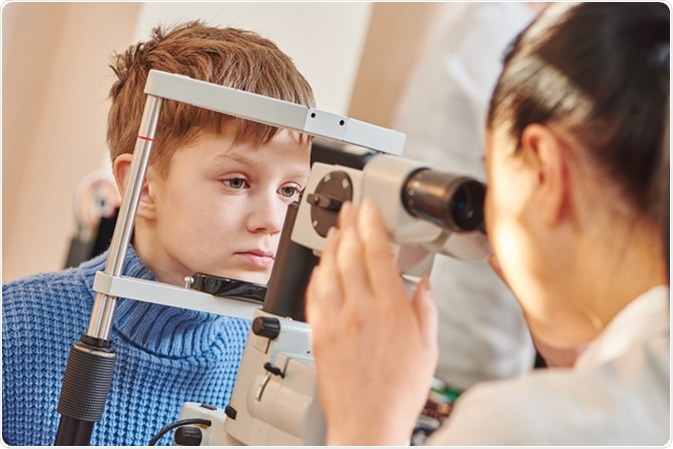Pediatrics in Andalusia: Compassionate Take Care Of Expanding Families
Is Refractive Surgical Treatment Right for You? Variables to Take Into Consideration for Better Eyecare
In the realm of eye care, the choice to go through refractive surgical procedure is a crucial one that demands thoughtful consideration. From the ins and outs of one's eye wellness to the complexities of day-to-day behaviors and individual assumptions, each facet holds significance in the more comprehensive landscape of refractive surgical treatment candidateship.
Eye Health And Wellness Analysis
When considering refractive surgery, a comprehensive eye health and wellness evaluation is critical to examine the suitability of the procedure for each and every person. neurologist andalusia. This examination involves a series of evaluations and examinations carried out by an eye treatment professional to determine the total wellness of the eyes, the existence of any underlying conditions, and the stability of the refractive mistake
Throughout the examination, various aspects are taken right into account, such as the patient's case history, existing eye prescription, corneal density, student size, and tear film high quality. These analyses help to determine any type of contraindications to refractive surgical treatment, such as corneal irregularities, cataracts, or untreated eye infections. In addition, the examination aids to take care of client assumptions pertaining to the prospective results of the surgical treatment based on their unique eye features.
Inevitably, the eye health and wellness analysis is essential in making certain the safety and security and effectiveness of refractive surgical procedure, as it supplies useful insights right into the individual's eye health and wellness condition and helps establish the most ideal therapy choices for attaining optimal visual results. (eye doctors in andalusia)
Way Of Living Analysis
A comprehensive way of life assessment is important in figuring out the viability of refractive surgery for a person's visual modification needs. Way of living variables such as line of work, hobbies, and everyday activities play an essential duty in the decision-making procedure relating to refractive surgical treatment.
Additionally, way of living practices such as sports engagement, outside activities, or even skincare routines can affect the recovery process and total success of refractive surgical treatment. By carrying out an extensive way of life analysis, eye treatment specialists can customize their suggestions and therapy plans to meet the one-of-a-kind requirements of each person, ultimately leading to boosted aesthetic outcomes and complete satisfaction.
Assumption Alignment

Clients require to comprehend useful site that while several individuals accomplish 20/20 vision or far better following refractive surgical treatment, some may still call for glasses for specific tasks like analysis or driving at evening. Handling these expectations assists protect against dissatisfaction and discontentment post-surgery, leading to an extra favorable overall experience for the client.
Danger Evaluation

Aspects that may enhance the danger of difficulties include age, certain clinical conditions like autoimmune conditions, unsteady vision prescription, thin corneas, and unrealistic patient assumptions. In addition, selecting a knowledgeable and seasoned specialist, complying with pre and post-operative care instructions faithfully, and revealing any type of appropriate case history can assist minimize threats.
To lessen the likelihood of issues, ophthalmologists carry out detailed pre-operative examinations to identify any contraindications to surgical treatment. They additionally talk about the potential risks and advantages with people throughout the assessment procedure. By involving in open communication and shared decision-making, both the patient and the eye doctor can collaborate to figure out if refractive surgical procedure is the right selection based on specific threat profiles and wanted end results.
Consultation Relevance
Taking into consideration the crucial function of notified decision-making in assessing dangers and potential issues in refractive surgery, the assessment process holds considerable relevance in guiding patients towards ideal end results. During the assessment, the eye doctor reviews the patient's eye health, refractive mistakes, and general viability for surgery. This initial evaluation is important in identifying one of the most suitable treatment for each and my link every person, thinking about elements such as corneal density, pupil size, and existing eye problems.
Moreover, the consultation serves as a possibility for individuals to discuss their expectations, worries, and any kind of concerns they may have pertaining to the surgical treatment. Clear communication in between the specialist and the patient is important to ensure realistic assumptions and a comprehensive understanding of the potential threats and benefits involved.
Additionally, the assessment enables the specialist to clarify the various surgical alternatives offered, their particular results, and the post-operative care called for. This detailed conversation encourages patients to make knowledgeable decisions regarding their eye care, leading to far better complete satisfaction and results post-surgery.
Conclusion
Finally, people taking into consideration refractive surgery must undergo a thorough eye health examination, assess their way of living behaviors, align their assumptions with potential results, examine the involved risks, and prioritize consultations with eye care professionals. These elements play an essential duty in identifying the viability of refractive surgical procedure for each individual, guaranteeing optimal results and complete satisfaction with the procedure.
Patients thinking about refractive surgical treatment usually have high expectations concerning the results, expecting ideal vision without the demand for glasses or contact lenses. While refractive surgical procedure can significantly enhance vision and reduce dependency on visual help, it is vital for patients to over at this website recognize that results might vary based on private factors such as the degree of refractive error, corneal density, and overall eye health and wellness.
By engaging in open interaction and shared decision-making, both the individual and the eye doctor can work together to identify if refractive surgical treatment is the right option based on private danger profiles and wanted results.
Thinking about the essential function of informed decision-making in evaluating threats and prospective issues in refractive surgery, the examination procedure holds considerable relevance in guiding individuals in the direction of optimal results. Throughout the assessment, the ophthalmologist reviews the person's eye health, refractive mistakes, and total suitability for surgical treatment.